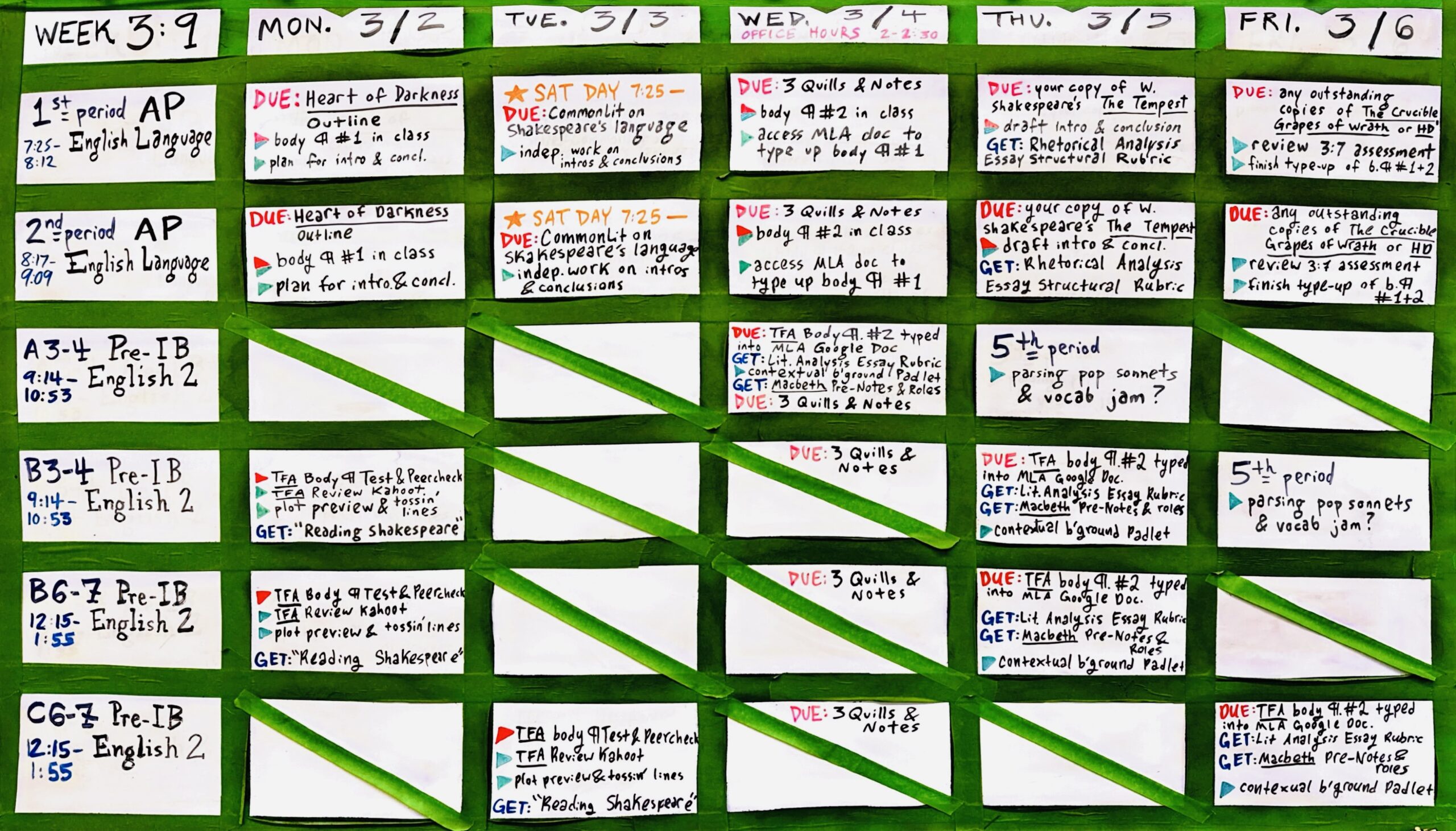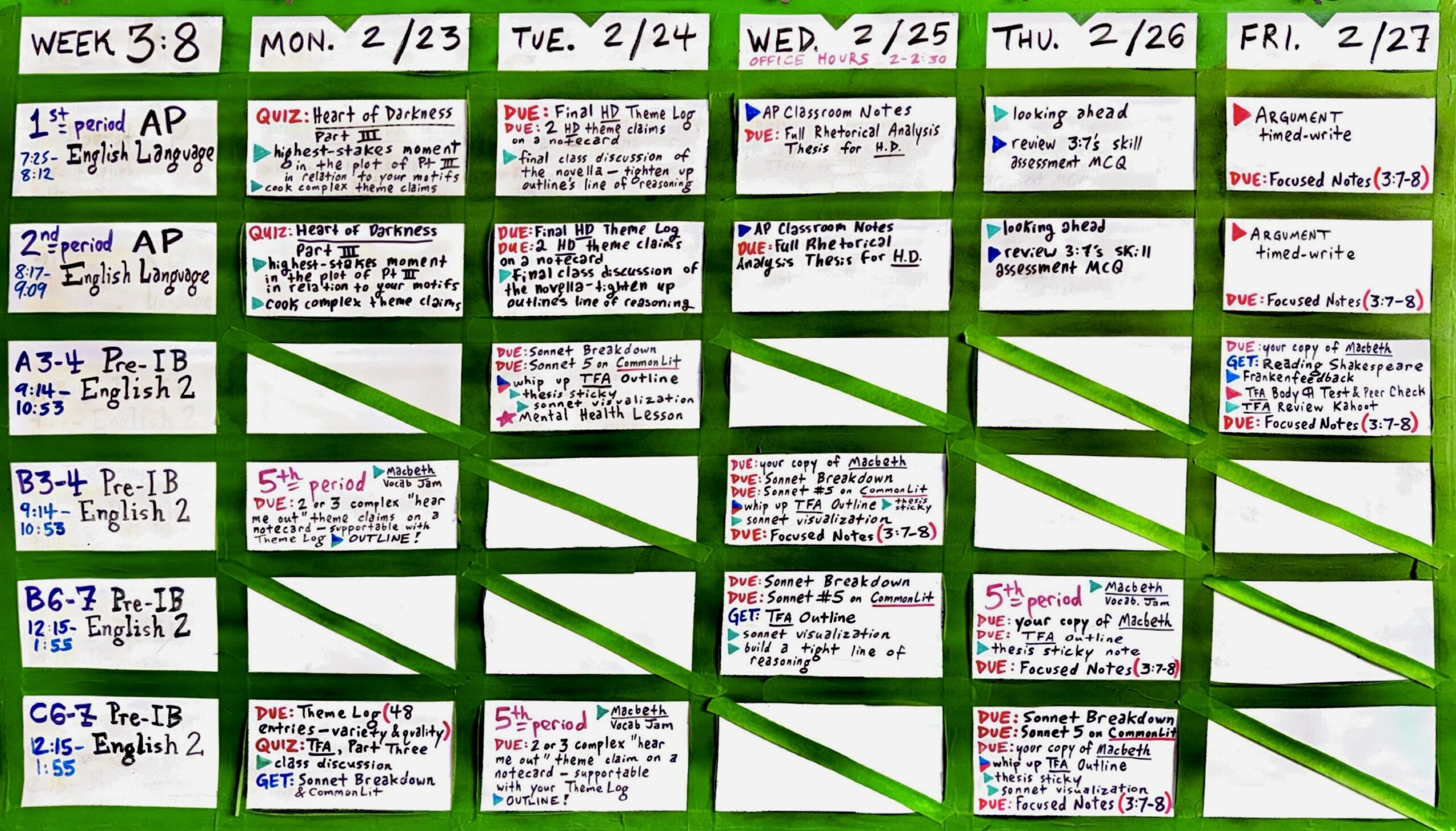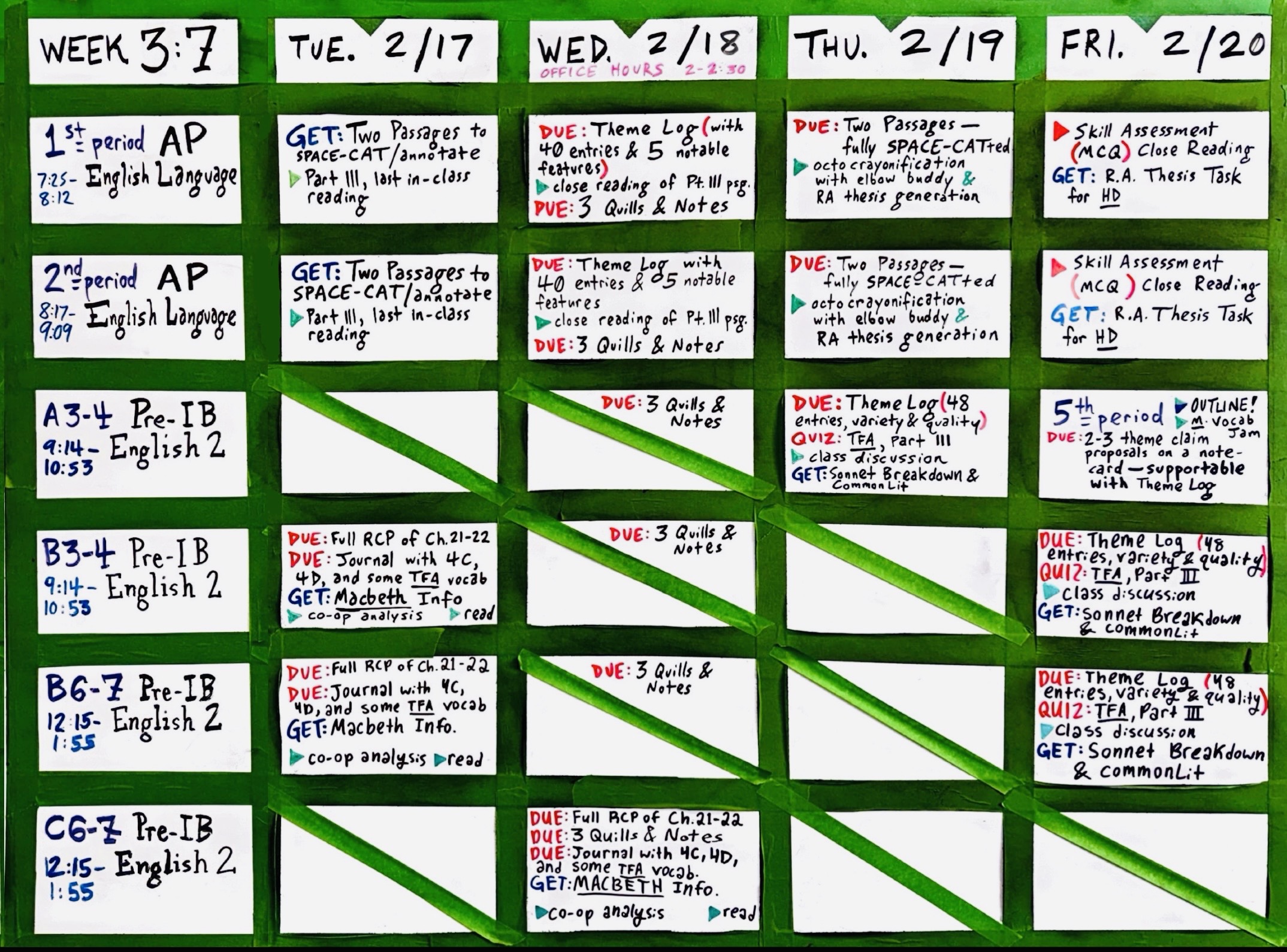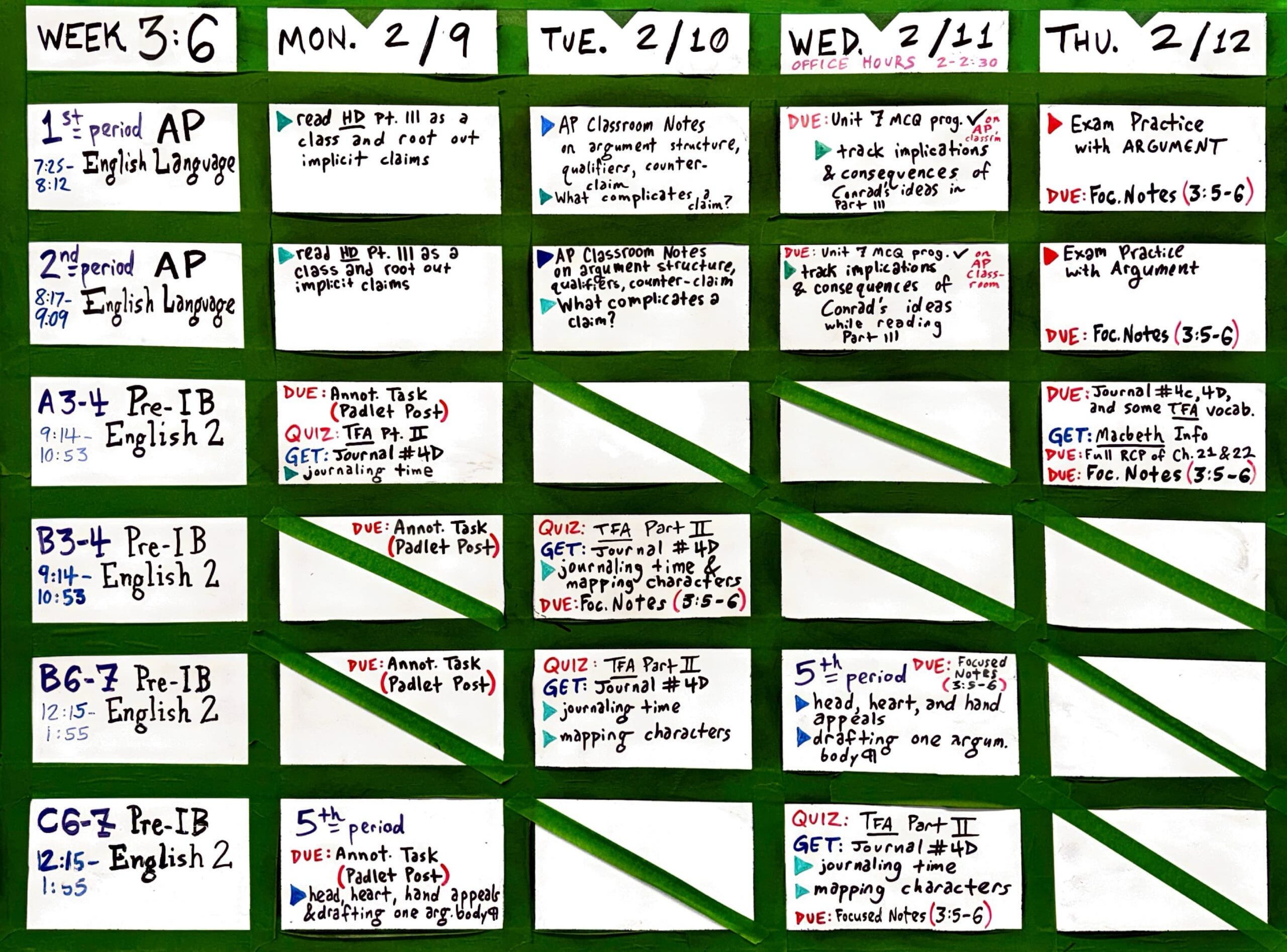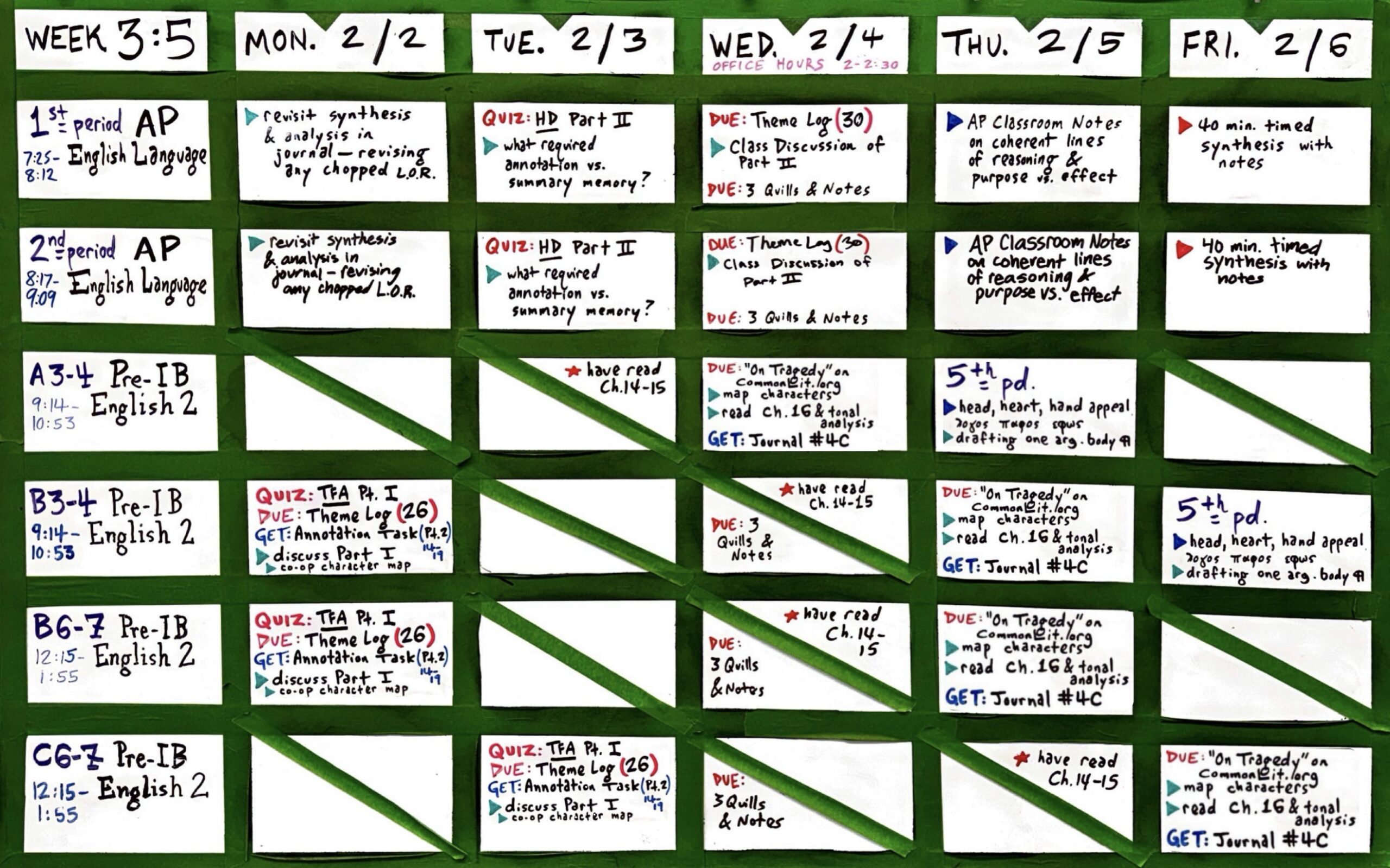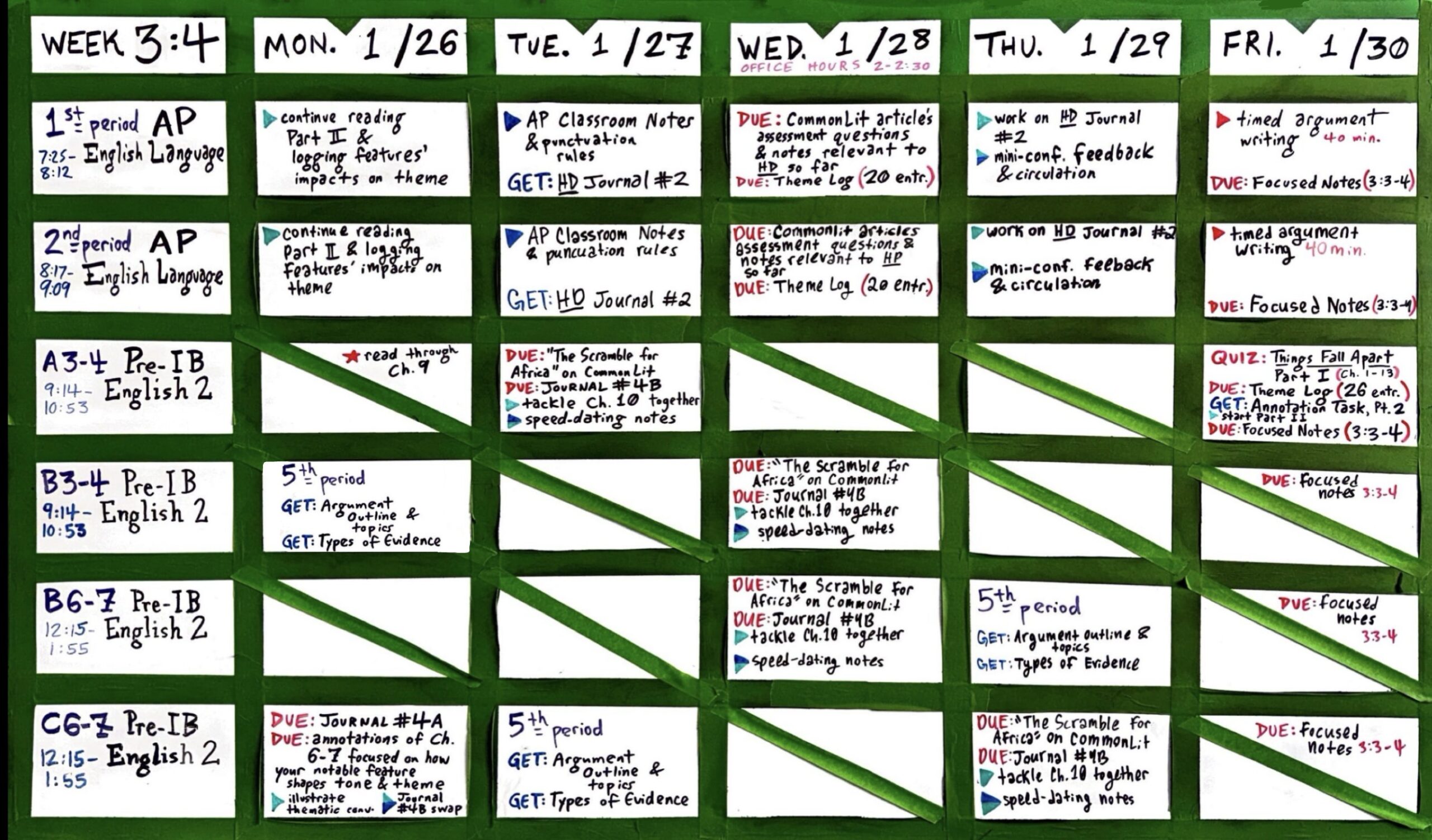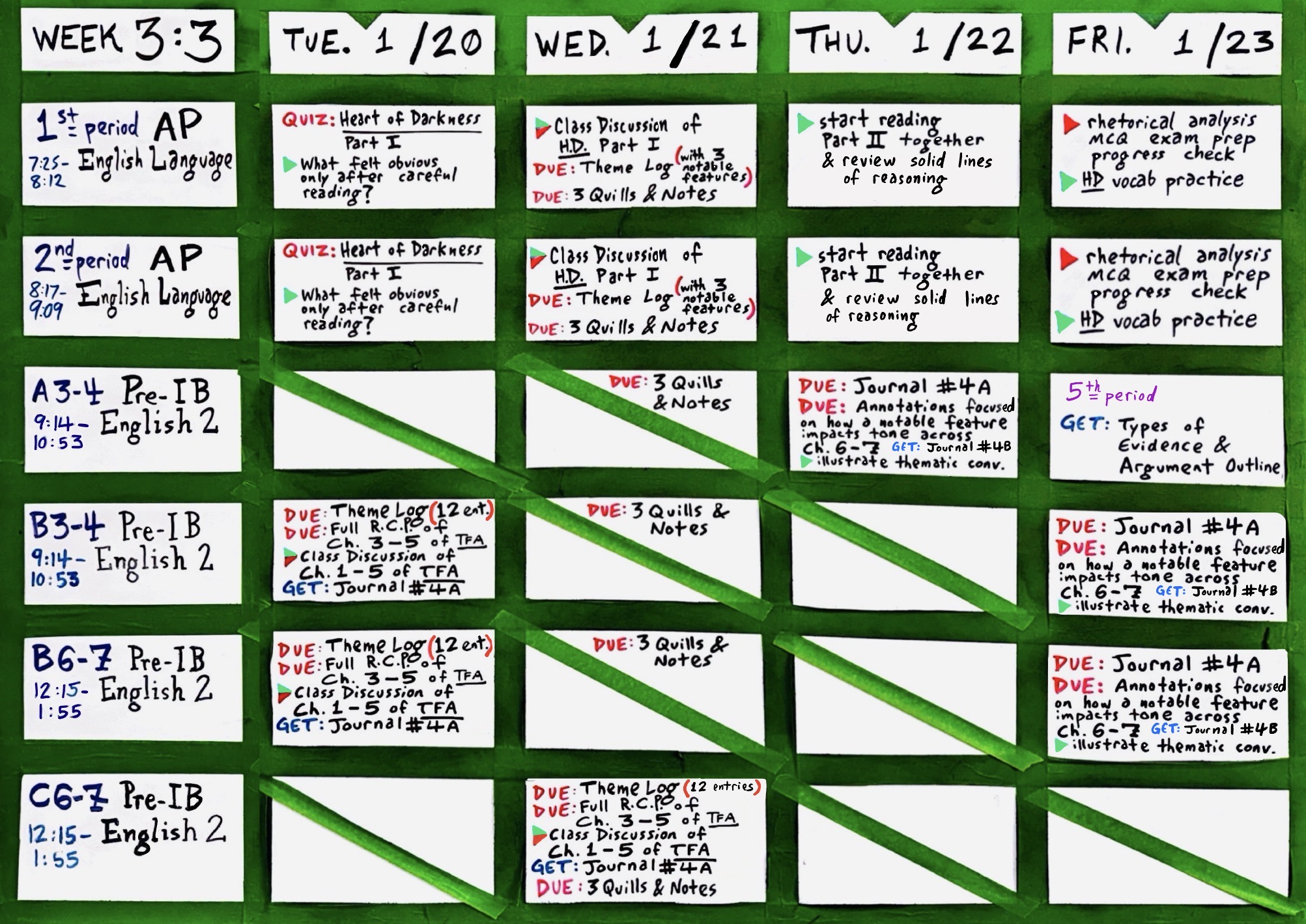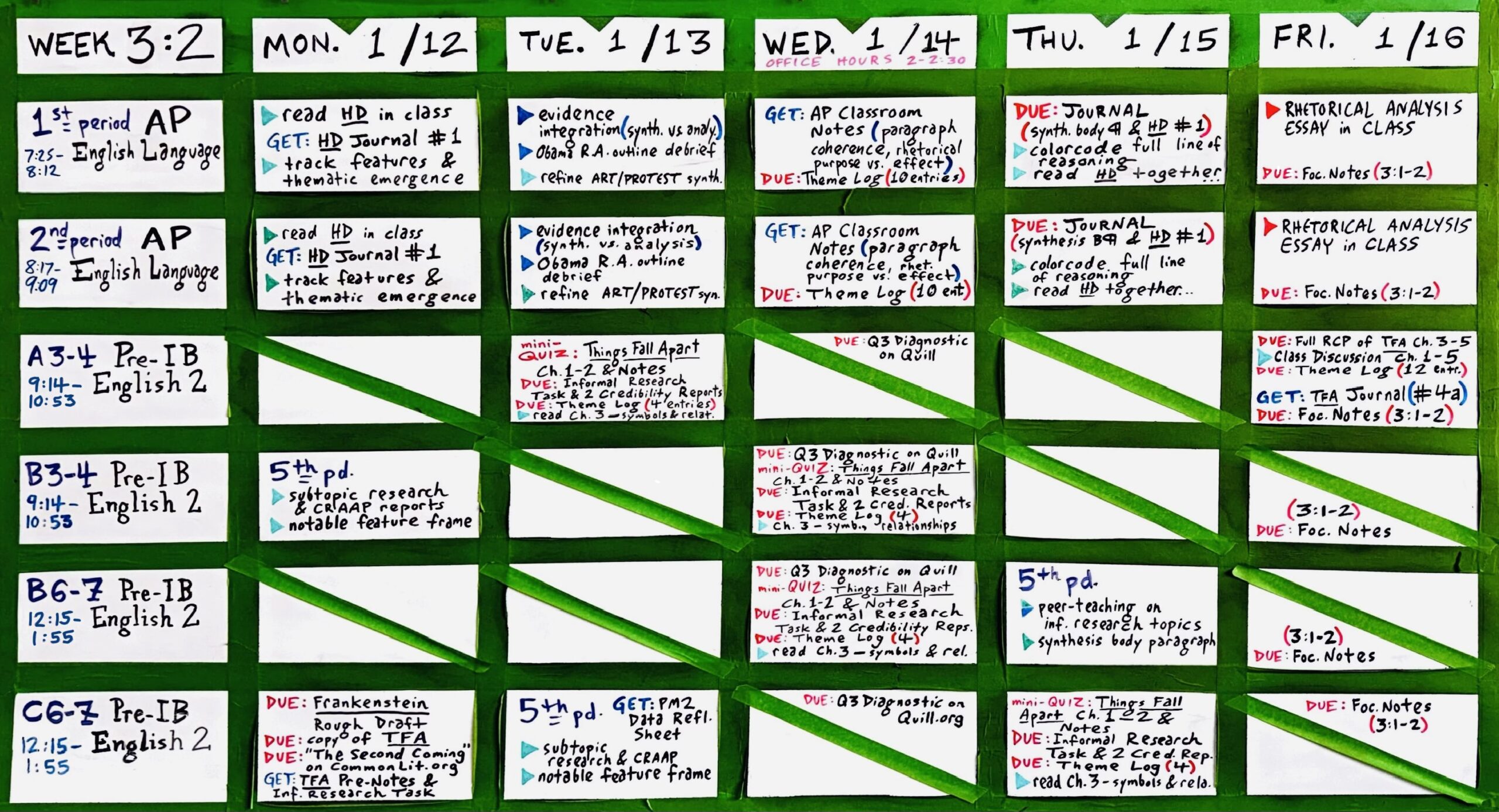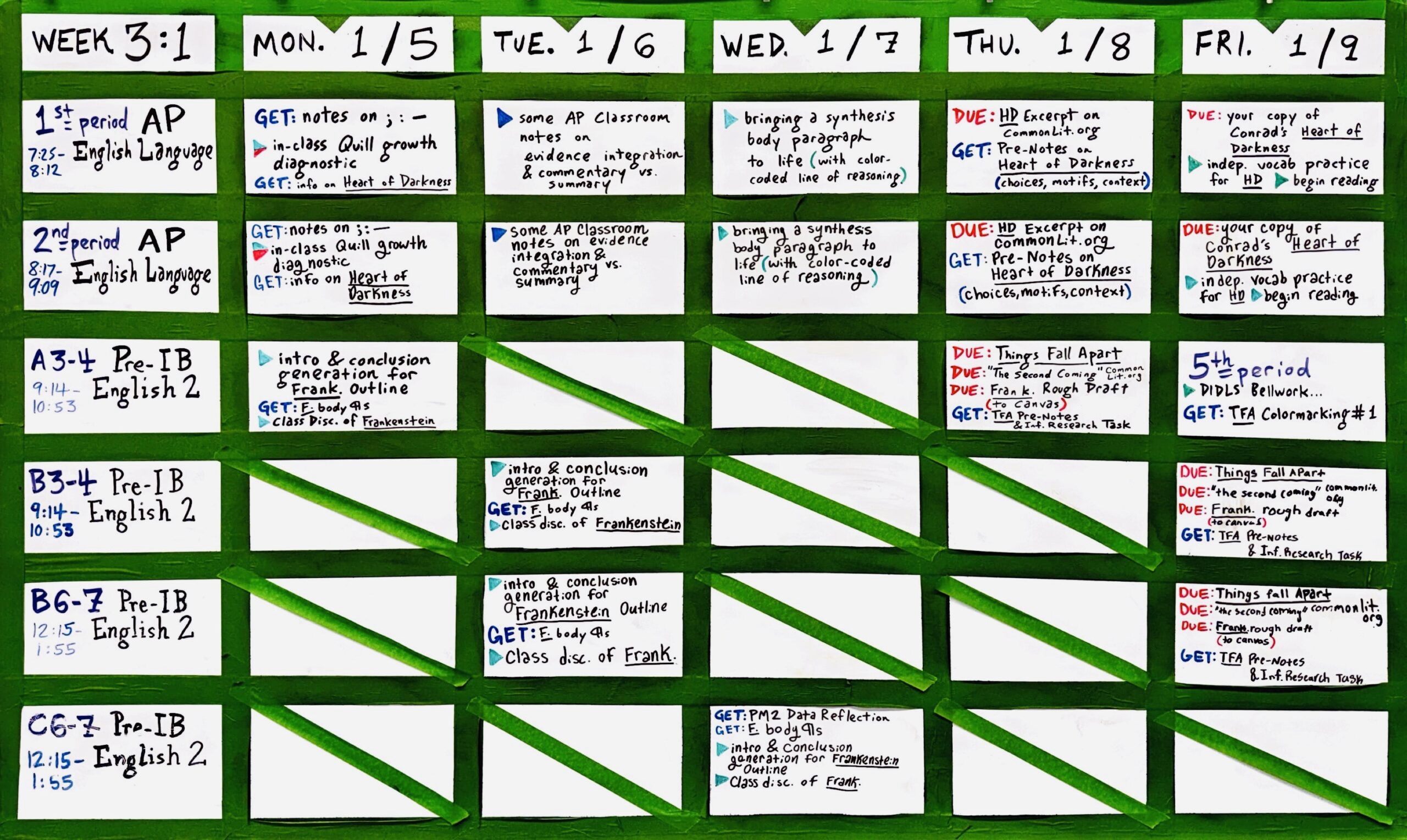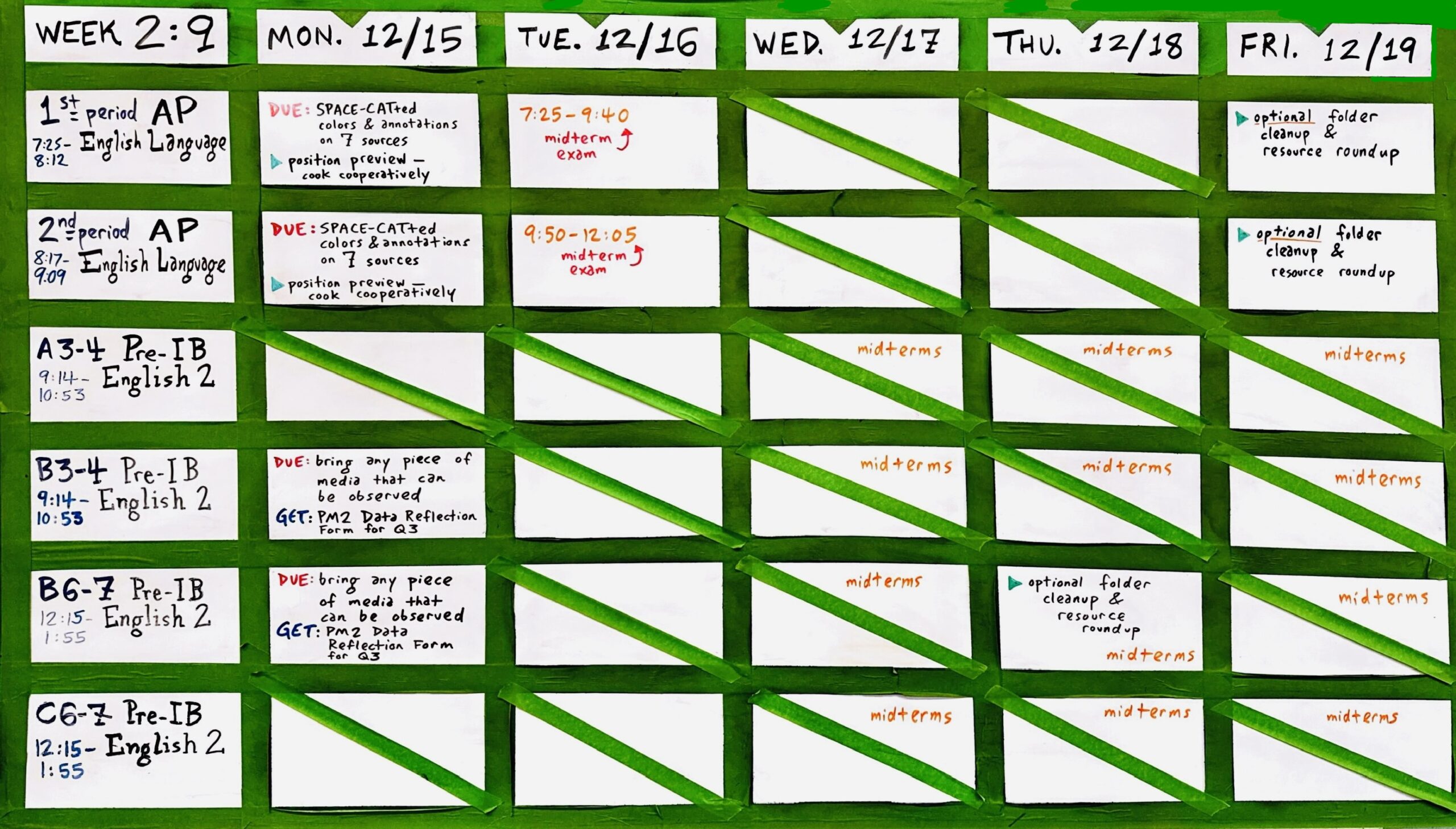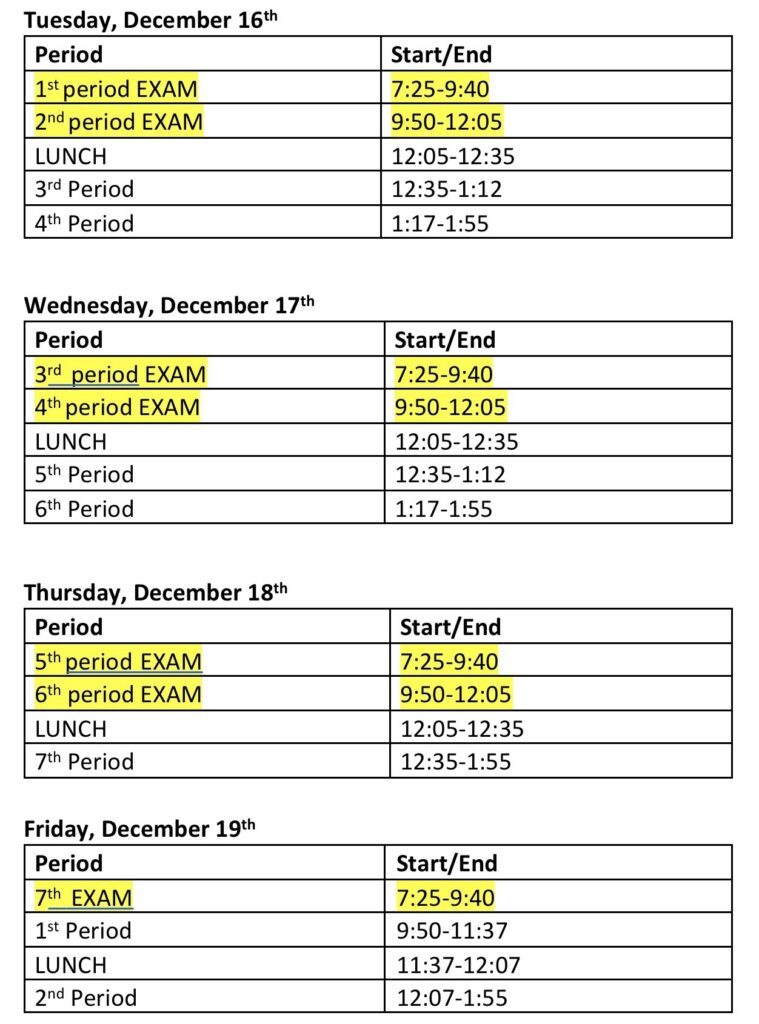AP Language: Sub Con Kit, Thesis Frames, Analytical Verbs, Wheel of Feels, Analyzing Diction & Syntax; Analysis: RA Thesis Frame, Rubric, SPACE-CAT, Rhetorical Terms, Body Paragraph Guidelines; Synthesis/Argument: Rubric, Transitions, Evidence, Appeals; Heart of Darkness: Blank Outline; The Tempest: Theme Log, “Reading Shakespeare” Doc
IB Freshmen: the RCP, the Sub Con Kit, Analytical Verbs, Wheel of Feels, Claim Frames & Analytical Verbs, Analyzing Diction & Syntax; Argument: Outline, Evidence, Appeals; Things Fall Apart: E-text, Blank Outline & Outline Checklist, Literary Analysis Thesis Frame, Essay Rubric; Macbeth: Sonnet Breakdown, Theme Log, Interactive E-text (CLASS CODE: G9CDBT), Plain E-text, Vocab Practice, Audioplay, Pre-Notes, “Reading Shakespeare” Doc, Performance Roles & Responsibilities
IB Diploma Support: Rotation Calendar, Semester Grade Chart, Say Something; Research: Gale Databases, Google Scholar, JSTOR, Sci-Hub; EEs: English Guide, Cross-disciplinary Guide, MLA Template, MLA Sample Paper, Prescribed Reading List

